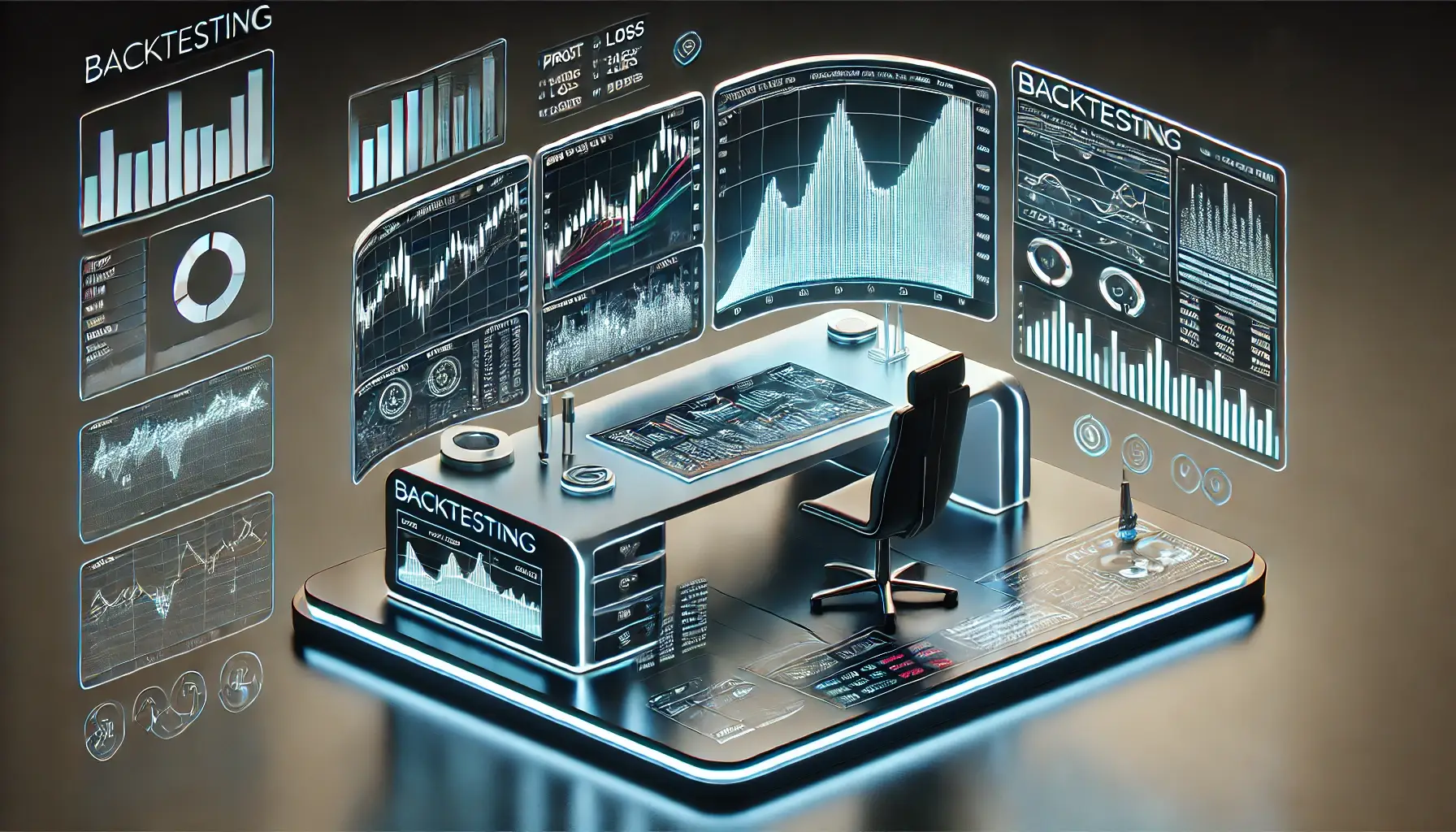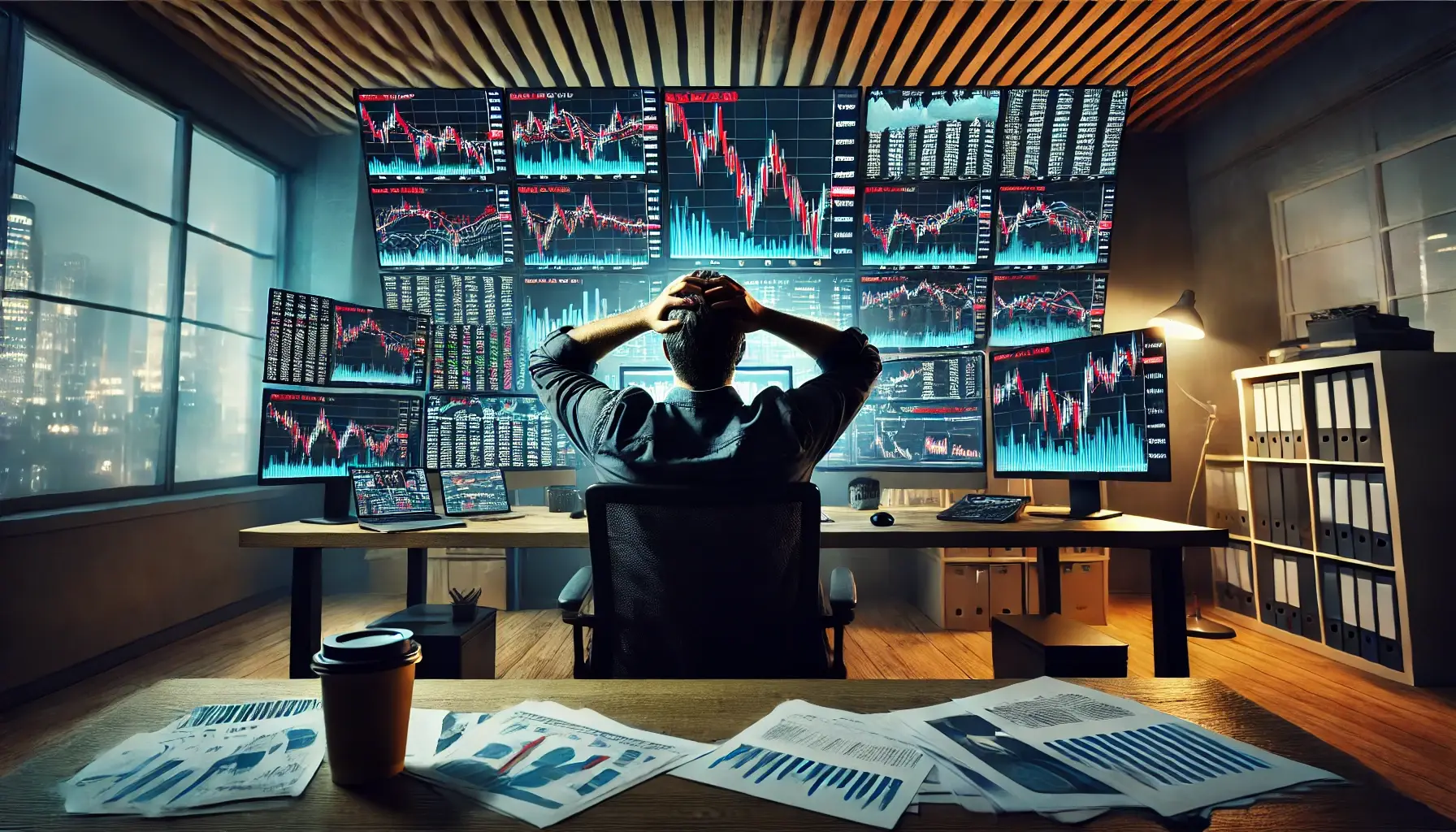For prop traders in particular, trading burnout is a serious risk that can hinder performance and decision-making, so how do experienced traders manage this challenge and maintain longevity in such a high-pressure environment? In this post, we’ll explore the strategies they use to stay sharp and avoid burnout while ensuring long-term success.
Table of Contents
Why Managing Burnout Is Crucial for Traders
Trading Burnout is a state of emotional, mental, and physical exhaustion that will often lead to reduced effectiveness in trades, and a loss of focus. For traders, burnout can manifest in poor decision-making, increased risk-taking, and emotional trading. As a trader, you need more than just technical expertise to maintain success; mental endurance and resilience is also key. Experienced traders recognize this and have developed strategies to prevent burnout, ensuring their performance stays consistent.

Identifying the Signs of Burnout
In order to manage trading burnout, you first need to recognize when it’s happening. Many traders overlook the early signs, assuming they just need to “power through.” Here are some common indicators to watch for:
Constant fatigue:
Feeling drained even after adequate rest.
Decreased focus:
Struggling to stay attentive during trading sessions.
Emotional volatility:
Quick frustration or anger over market movements.
Reduced productivity:
An inability to execute trades efficiently or effectively.
Loss of enjoyment:
Trading feels like a chore instead of a passion.
If any of these symptoms sound familiar, it’s time to take action before burnout worsens.
Prioritizing Self-Care: A Key to Longevity
Experienced traders understand that maintaining their physical and mental health is essential for sustained success. They often prioritize self-care to counteract the effects of long hours in front of the screen. Here are some effective self-care strategies:
Regular exercise:
Physical activity not only boosts energy but also reduces stress, helping traders stay sharp.
Mindfulness practices:
Techniques like meditation or deep breathing exercises can help manage stress and improve emotional regulation during volatile trading periods.
Balanced nutrition:
A well-rounded diet supports brain function and keeps energy levels stable throughout the trading day.
By taking care of their bodies and minds, traders ensure they can perform at their best for longer periods.
Setting Realistic Goals and Limits
Setting realistic goals and limits is crucial to managing trading burnout. Experienced traders understand that it’s essential to establish achievable expectations rather than constantly aiming for unrealistic targets. By acknowledging their limits and setting goals that align with their abilities, traders can maintain longevity in the market and avoid burning out.
Create a manageable schedule:
Limit your trading hours to avoid mental exhaustion. A defined schedule helps traders stay focused without overexerting themselves.
Take breaks:
Step away from the screen regularly. Short breaks throughout the day and longer periods off the market can refresh your perspective and prevent burnout.
Celebrate small wins:
Focus on incremental progress instead of constantly chasing large profits. Recognizing smaller achievements can sustain motivation and reduce pressure.
Leveraging Support Networks
Trading can often feel like a solitary endeavor, especially for prop traders working remotely or independently. However, building and leveraging a support network can be a game-changer for managing burnout.
Join a trading community:
Engaging with other traders provides opportunities for sharing experiences, learning new strategies, and gaining emotional support.
Seek mentorship:
Experienced traders often turn to mentors for guidance and advice, helping them navigate challenges and avoid feeling isolated.
Use coaching services:
Some prop firms, like TopStep or FTMO, offer coaching and performance feedback, helping traders improve their strategies and mental resilience.
By staying connected with others, traders can share the mental load of trading and find encouragement in difficult times.
Practicing Emotional Detachment
One of the biggest contributors to trading burnout is emotional trading—when a trader’s decisions are driven by fear, greed, or frustration. Experienced traders maintain longevity by practicing emotional detachment, focusing on their strategy and risk management instead of reacting impulsively to market movements.
Stick to your plan:
Trust in your trading strategy and avoid making decisions based on momentary emotions.
Implement stop-loss limits:
Protect yourself from emotional reactions by setting clear stop-losses, so you don’t feel the need to constantly monitor every price fluctuation.
Keep a trading journal:
Reflecting on your trades helps identify patterns of emotional decision-making, enabling you to correct them and improve discipline.
This approach allows traders to maintain clarity, even in the face of unexpected market changes.
Suggested links:
Emotional Trading: What Is It And How To Manage It
Effective Stop Loss And Take Profit Strategies
Conclusion
Trading Burnout can be a silent killer of trading careers, but by recognizing the signs early and implementing the right strategies, traders can maintain both their mental health and their market performance. Remember to prioritize self-care, set realistic limits, leverage support networks, and practice emotional detachment to ensure a sustainable and successful trading journey.
You may also be interested in a great article by Market Bulls on Avoiding Trading Burnout.





